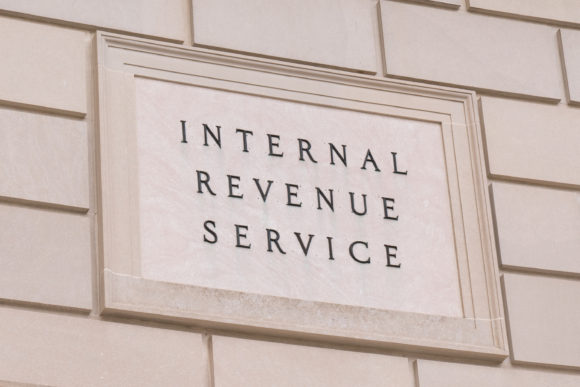The Internal Revenue Service said it is mailing a time-limited settlement offer for certain taxpayers under audit who participated in what the IRS calls “abusive micro-captive insurance” transactions.
The IRS has been warning about these micro-captives for several years and placed them on its annual “Dirty Dozen” list of tax scams.
The IRS has consistently disallowed the tax benefits claimed by taxpayers in these micro-captive structures, and although some taxpayers have challenged the IRS position in court, none have been successful. Following wins in three recent U.S. Tax Court cases, the IRS said it has decided to offer settlements to taxpayers currently under exam. The IRS said it started sending notices to up to 200 taxpayers within the past few days. The agency said there are more than 500 cases in court.
The IRS said this settlement offer requires “substantial concession of the income tax benefits claimed by the taxpayer together with appropriate penalties unless the taxpayer can demonstrate good faith, reasonable reliance.”
Taxpayers who are eligible for this offer will be notified by letter with the applicable terms. Taxpayers who do not receive the letter are not eligible for this resolution.
Tax law generally allows businesses to create “captive” insurance companies to protect against certain risks. Under section 831(b) of the Internal Revenue Code, certain small insurance companies can choose to pay tax only on their investment income. The IRS contends that promoters, accountants or wealth planners have been persuading owners of closely held entities to participate in the captive insurance schemes that the IRS has argued lack many of the attributes of genuine insurance.
Originally, captives were created to provide coverage that was hard to find in traditional insurance markets, but they have expanded well beyond that to provide almost all types of insurance. Many of the largest companies have at least one captive today and they have also become popular among smaller and midsize firms, including professional services firms.
The vehicles are popular because under tax law the owners of a small insurance company can pay up to $1.2 million in tax-deductible premiums. Then, under Section 831(b) of the tax code, any small property/casualty insurer with annual premiums under $1.2 million may choose to be taxed on its net investment income as opposed to its premium income. The alternative tax provision used by micro-captives is also used by small, mutual and rural insurance companies.
In 2017, the U.S. Tax Court disallowed the “wholly unreasonable” premium deductions the taxpayer had claimed under a section 831(b) micro-captive arrangement, concluding that the arrangement was not “insurance” under long established law (Avrahami v. Commissioner, 149 T.C. No. 7 (2017). In 2018, the Tax Court concluded that the transactions in a second micro-captive arrangement were not “insurance.” (Reserve Mechanical Corp. v. Commissioner, T.C. Memo. 2018-86).
The IRS has never been a fan of captives and did not officially recognize captives as legitimate tax structures until 2002. In 2008, it proposed and then dropped a bid to alter how captives are taxedafter lawmakers from Vermont and other states complained. It has also questioned payment of what it believes are excessive premiums into captives by some owners.
The IRS said it will continue to disallow the tax benefits involving micro-captives and will continue to defend its position in court. The IRS said it has decided, however, to offer to resolve certain of these cases.
“The IRS is taking this step in the interests of sound tax administration,” IRS Commissioner Chuck Rettig said in prepared remarks. “We encourage taxpayers under exam and their advisers to take a realistic look at the matter and carefully review the settlement offer, which we believe is the best option for them given recent court cases. We will continue to vigorously pursue these and other similar abusive transactions going forward.”
Taxpayers who receive letters under this settlement offer but opt not to participate will continue to be audited by the IRS under its normal procedures. The agency said potential outcomes may include full disallowance of captive insurance deductions, inclusion of income by the captive and imposition of all applicable penalties.
Source:IRS





















 Viewpoint: Runoff Specialists Have Evolved Into Key Strategic Partners for Insurers
Viewpoint: Runoff Specialists Have Evolved Into Key Strategic Partners for Insurers  Reinsurance Program Could Wipe Out Need for Calif. FAIR Plan: Legal Exec
Reinsurance Program Could Wipe Out Need for Calif. FAIR Plan: Legal Exec  AI Claim Assistant Now Taking Auto Damage Claims Calls at Travelers
AI Claim Assistant Now Taking Auto Damage Claims Calls at Travelers  Large Scale Cargo Ring Busted in LA, $5M Recovered
Large Scale Cargo Ring Busted in LA, $5M Recovered 
